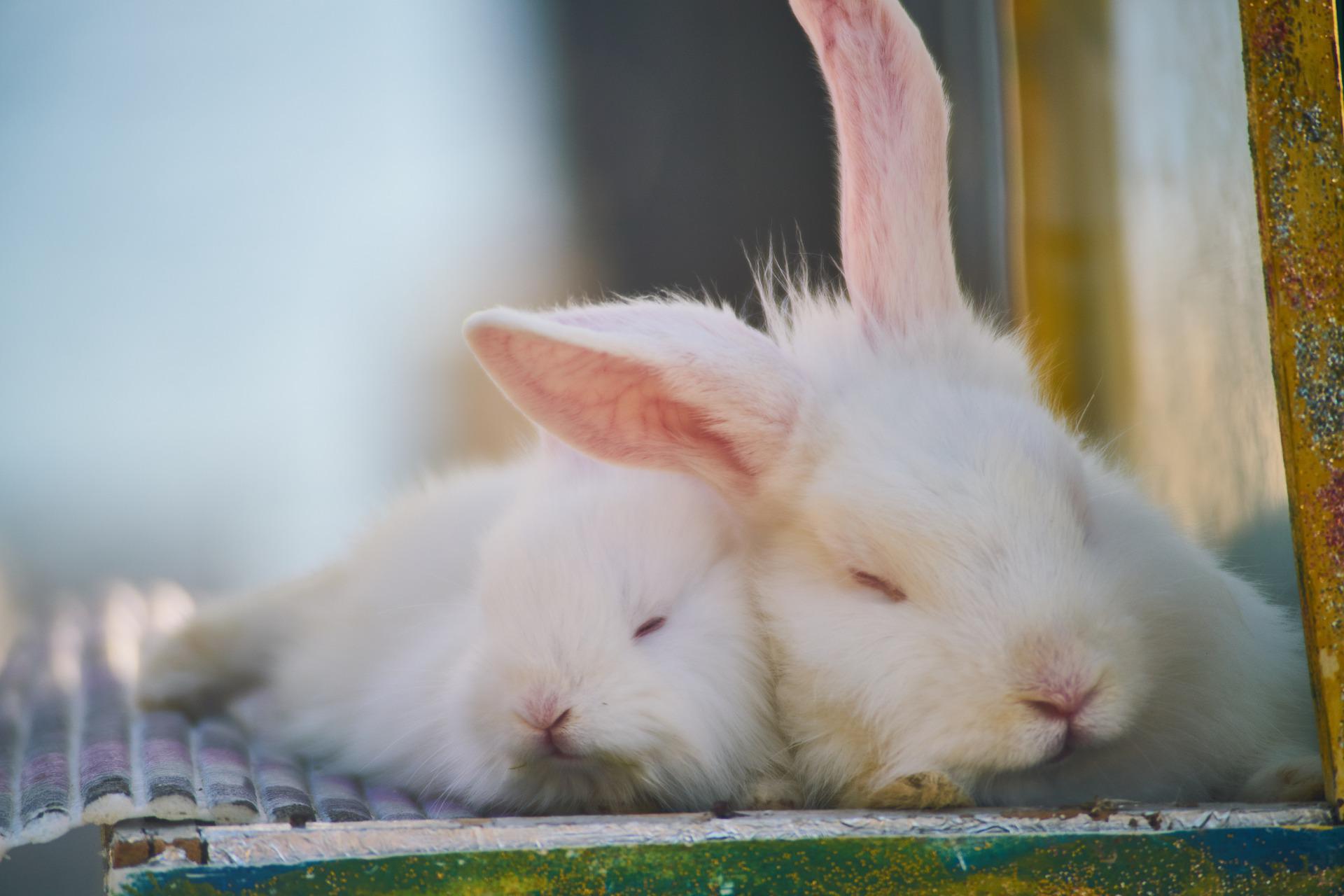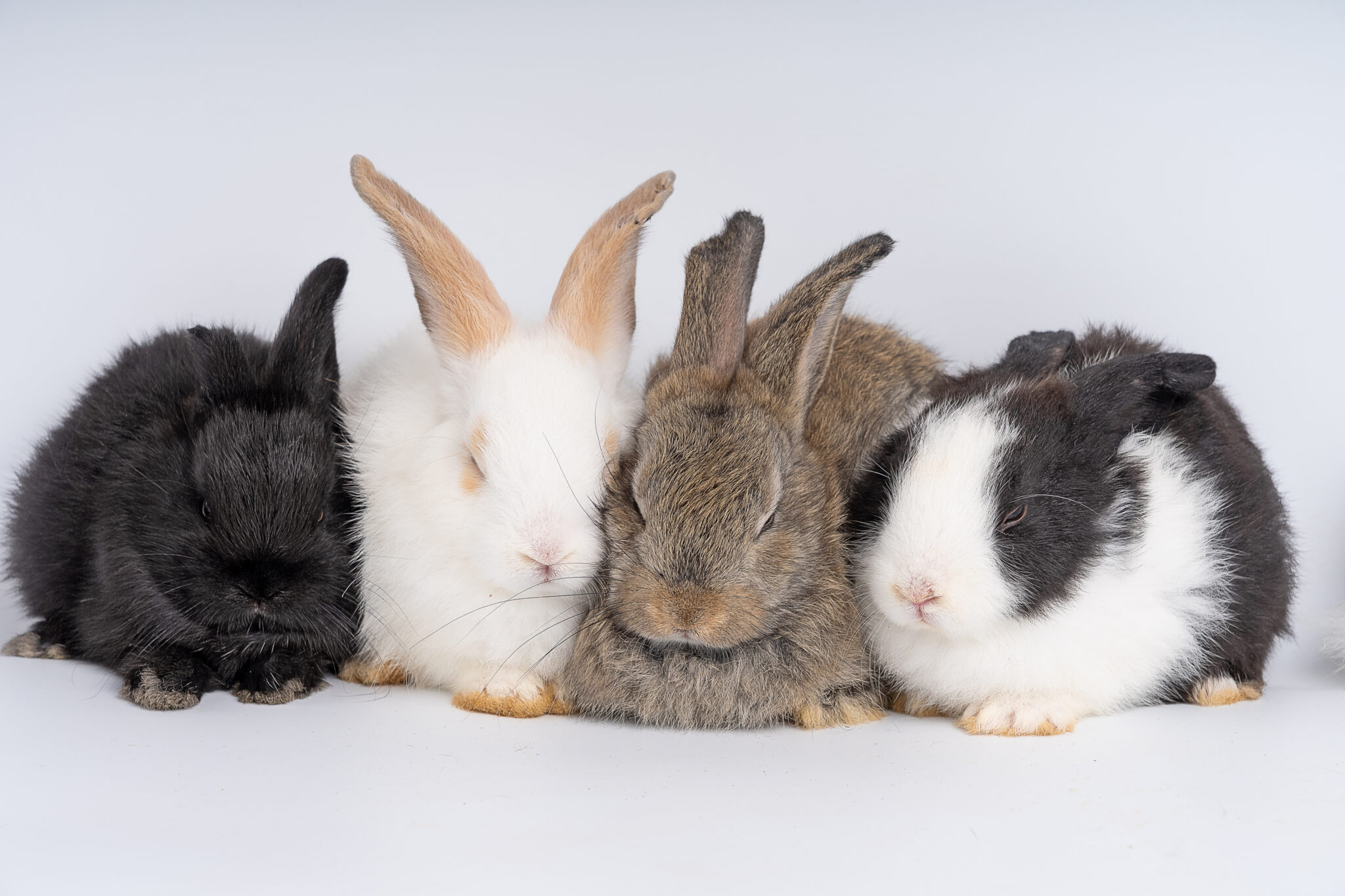You might think rabbits sleep like we do, but guess what? Their sleep routine is a whole different story! If you're a rabbit owner or just curious about these adorable creatures, understanding their sleep patterns is key to their well-being. When do rabbits sleep? Well, it's not as straightforward as you might think. Let’s dive into the world of bunny bedtime and uncover the secrets behind their unique habits.
Picture this: you’re sitting on the couch, enjoying a quiet evening, and you glance over at your rabbit. It's either wide awake or fast asleep. Ever wondered why? Rabbits are creatures of the wild at heart, and their sleep schedule reflects that. They don’t follow the typical night-and-day sleep cycle that humans do. Instead, they’re crepuscular, which means their activity peaks during twilight hours.
Knowing when rabbits sleep isn’t just a fun fact—it’s crucial for anyone who shares their home with these fluffy friends. Understanding their sleep patterns helps you provide the best care and create an environment where they can thrive. So, let’s hop into the details and find out what makes bunny bedtime so fascinating!
- Damiano David Wife The Love Story Behind Italys Heartthrob
- Unveiling The Heartfelt Journey Mothers Warmth Chapter 3
Here's a quick guide to help you navigate through the article:
- Rabbit's Biological Clock
- The Crepuscular Nature of Rabbits
- Understanding Rabbit Sleep Patterns
- Signs Your Rabbit is Sleeping
- Creating the Perfect Sleep Environment
- Sleep and Rabbit Health
- Tips for Better Bunny Sleep
- Rabbit Sleep vs. Human Sleep
- Common Myths About Rabbit Sleep
- Wrapping It All Up
Rabbit's Biological Clock: What Makes Them Tick?
Ever wondered what drives a rabbit’s sleep schedule? It all comes down to their biological clock. Rabbits, like most animals, have an internal mechanism that regulates their activity levels based on the time of day. This clock is influenced by light and dark cycles, which is why they’re most active during dawn and dusk.
Here’s the thing: rabbits are prey animals in the wild. Their ancestors evolved to be most alert during twilight hours because that’s when predators are less active. By sleeping during the day and night, they minimize their exposure to danger. This unique adaptation has stuck with domestic rabbits, even though they don’t have to worry about predators anymore.
- Felicity Gullit The Rising Star Of Modern Entertainment
- Lacykim Onlyfans Leak The Untold Story Behind The Scenes
How Light Affects Rabbit Sleep
Light plays a huge role in a rabbit’s sleep cycle. When the sun rises, their bodies start to wake up. As the day progresses, they become more relaxed and may take short naps. But don’t be fooled—these naps aren’t the same as a full night’s sleep. Rabbits are light sleepers, and they’re always on high alert, even when they’re resting.
If you’ve ever noticed your rabbit twitching or suddenly waking up during a nap, it’s because their instincts tell them to be ready for anything. This is why providing a calm, dimly lit environment is crucial for their rest.
The Crepuscular Nature of Rabbits: Why Twilight is Their Time
Let’s talk about the elephant in the room—or should I say, the rabbit in the hutch. Rabbits are crepuscular, meaning they’re most active during the early morning and late afternoon. This behavior is deeply rooted in their evolutionary past. In the wild, these hours offer the perfect balance of visibility and safety. It’s not too bright, but it’s not completely dark either.
But what does this mean for pet rabbits? Well, it means they’re not exactly night owls or early birds. Instead, they’re more like… well, crepuscular critters. Understanding this can help you adjust your interactions with your bunny. For example, if you notice your rabbit is more energetic in the evening, it’s not misbehaving—it’s just following its natural rhythm.
Why Twilight is the Best Time for Play
If you want to bond with your rabbit, try scheduling playtime during their peak activity hours. Twilight is the perfect time for a little hop-around or some interactive play. Not only will your rabbit be more engaged, but it’ll also help them burn off excess energy before they settle down for a nap.
Remember, rabbits aren’t built for long, intense play sessions. Instead, they prefer short bursts of activity followed by periods of rest. So, keep it light and fun, and your bunny will thank you for it.
Understanding Rabbit Sleep Patterns: It’s Not All Zzzs
Now that we know when rabbits sleep, let’s dive deeper into how they sleep. Contrary to popular belief, rabbits don’t just curl up and drift off like we do. Their sleep is more fragmented, consisting of short bursts of rest interspersed with periods of alertness. This is because, in the wild, rabbits had to stay vigilant even while sleeping.
On average, rabbits sleep for about 8-10 hours a day, but this isn’t all at once. They take multiple short naps throughout the day and night. Each nap lasts anywhere from 10 minutes to an hour, depending on how safe they feel in their environment.
REM Sleep in Rabbits: Do They Dream?
Interestingly, rabbits experience REM (Rapid Eye Movement) sleep, just like humans. During this phase, their brains are highly active, and they may twitch or move their legs as if they’re running. Some experts believe this is when rabbits dream, though we’ll never truly know what goes on in their little bunny minds.
If you catch your rabbit twitching during sleep, don’t worry—it’s completely normal. It’s just their way of processing the day’s events and staying prepared for any potential threats.
Signs Your Rabbit is Sleeping: Spotting the Snoozers
How do you know if your rabbit is sleeping? It’s not always as obvious as you might think. While some rabbits curl up in a ball and close their eyes, others may rest with their eyes partially open. This is another adaptation from the wild, where keeping an eye out for danger was essential.
Here are some common signs that your rabbit is catching some Zzzs:
- Relaxed body posture
- Slow, steady breathing
- Half-closed or closed eyes
- Twitching whiskers or ears
- Occasional leg movements
It’s important to let your rabbit sleep undisturbed during these moments. Interrupting their rest can cause stress and make them feel unsafe. So, resist the urge to pet or pick them up unless it’s absolutely necessary.
Creating the Perfect Sleep Environment: A Bunny Haven
If you want your rabbit to get the best rest possible, you need to create an environment that supports their natural sleep patterns. This means providing a safe, comfortable space where they can relax without feeling threatened.
Start by choosing a quiet area of your home for their enclosure. Avoid placing it near noisy appliances or high-traffic areas. Rabbits are sensitive to noise and vibrations, so a calm setting is essential for their peace of mind.
Essential Elements of a Bunny Sleep Space
Here are some key elements to include in your rabbit’s sleep area:
- A soft bed or blanket for comfort
- A hiding spot or burrow for security
- Dim lighting to mimic twilight conditions
- Temperature control to keep them cozy
Remember, rabbits are creatures of habit. Once they’ve established a favorite sleeping spot, they’ll likely return to it time and time again. So, make sure it’s a place they feel safe and secure.
Sleep and Rabbit Health: The Connection You Need to Know
Just like humans, rabbits need adequate sleep to maintain good health. Sleep deprivation can lead to a host of issues, including stress, weakened immune systems, and behavioral problems. That’s why it’s crucial to ensure your rabbit gets enough rest.
One of the biggest signs of sleep-related issues in rabbits is changes in behavior. If your rabbit seems more irritable, less active, or has trouble eating, it could be a sign that they’re not getting enough sleep. Consult a veterinarian if you notice any of these symptoms.
How Sleep Affects Rabbit Longevity
Proper sleep is linked to longer, healthier lives in rabbits. When they’re well-rested, their bodies are better equipped to fight off illness and recover from injuries. This is why creating a sleep-friendly environment is so important for their overall well-being.
Don’t forget to monitor your rabbit’s sleep habits regularly. If you notice any significant changes, it could be a sign of an underlying health issue. Early detection and intervention can make all the difference in keeping your bunny happy and healthy.
Tips for Better Bunny Sleep: Helping Your Rabbit Rest Easy
Now that you know the importance of sleep for rabbits, here are some practical tips to help your bunny get the rest they need:
- Establish a consistent daily routine
- Provide plenty of mental and physical stimulation
- Offer a balanced diet to support energy levels
- Minimize stress and disruptions in their environment
- Regularly check their sleeping area for comfort and safety
Remember, every rabbit is unique, so it may take some trial and error to find what works best for yours. But with a little patience and care, you can create the perfect sleep setup for your fluffy friend.
Rabbit Sleep vs. Human Sleep: Spotting the Differences
While rabbits and humans both need sleep to function properly, our sleep patterns couldn’t be more different. Humans typically sleep in one long stretch at night, while rabbits take multiple short naps throughout the day and night. This difference is due to our respective roles in the animal kingdom—humans are predators, while rabbits are prey.
Another key difference is the level of alertness during sleep. Humans can sleep deeply without worrying about predators, but rabbits remain semi-conscious even while resting. This allows them to wake up quickly if they sense danger, which is a survival mechanism passed down through generations.
What Can We Learn from Rabbit Sleep?
Studying rabbit sleep can teach us a lot about the importance of rest and vigilance. While we may not need to worry about predators lurking in the shadows, we can still benefit from adopting some of their habits. Taking short naps during the day, for example, can boost productivity and improve focus.
Of course, we don’t recommend sleeping with one eye open like rabbits do. But incorporating short rest breaks into your daily routine can help you recharge and stay alert throughout the day.
Common Myths About Rabbit Sleep: Separating Fact from Fiction
There are plenty of misconceptions floating around about rabbit sleep. Let’s debunk a few of the most common ones:
- Rabbits sleep all day: False. While rabbits do nap frequently, they’re most active during twilight hours.
- Rabbits don’t dream: False. As we discussed earlier, rabbits experience REM sleep, which suggests they do dream.
- Rabbits only sleep in the dark: False. Rabbits can sleep at any time, as long as they feel safe and comfortable.
By separating fact from fiction, we can better understand our rabbit companions and provide them with the care they need.
Wrapping It All Up: The Importance of Bunny Bedtime
So, there you have it—a comprehensive look at when rabbits sleep and why it matters. From their crepuscular nature to their fragmented sleep patterns, rabbits have a unique approach to rest that’s shaped by millions of years of evolution. By understanding and supporting their sleep needs, we can ensure they live happy, healthy lives.
Remember, sleep isn’t just about rest—it’s about survival. For rabbits, getting enough sleep means staying alert and prepared for anything. As responsible rabbit owners, it’s our job to create an environment where they can thrive both physically and mentally.
Now it’s your turn! Have you noticed any interesting sleep habits in your rabbit? Share your experiences in the comments below, and don’t forget to check out our other articles for more bunny-related goodness. Happy hopping!
- Unveiling The World Of Filmy 4webcom Your Ultimate Movie Destination
- Crystal Lust The Untold Story Behind Her Tragic Death


